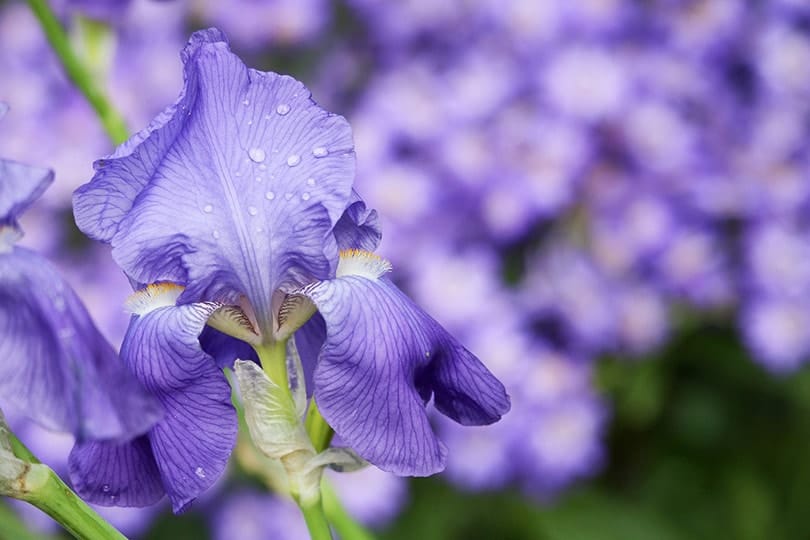Irises are beautiful flowers popular in flower beds and arrangements. These flowers are extremely popular for their beauty and ease of care, so they are frequently found in areas where cats may come into contact with them.
It’s important to thoroughly understand the potential for toxicity with any flowers you have in an area where your cat may encounter them. Here’s what you should know about irises.
Are Irises Poisonous to Cats?
Yes, irises are poisonous to cats due to their concentration of pentacyclic terpenoids. All parts of the plant pose toxicity risks, with the rhizome (or bulb) of the plant containing the highest levels of pentacyclic terpenoids. What makes the rhizome especially risky for your cat is its fun shape that may remind your kitty of a toy. Ideally, your cat should not have contact with any part of an iris plant.
Symptoms of Iris Toxicity
The symptoms of iris toxicity can vary in severity, but most cats don’t experience serious or life-threatening symptoms. Mild symptoms may include drooling and abdominal discomfort, while more serious symptoms include lethargy, diarrhea, and vomiting. Skin irritation, especially around the face and mouth, and mouth ulcers may also occur.

What Do I Do if My Cat Eats an Iris?
Generally, the symptoms of iris toxicity are self-limiting and will resolve on their own within a few hours or days, depending on how much pentacyclic terpenoids your cat consumed. More often than not, the symptoms aren’t of enough concern to warrant a vet visit. However, it’s always a good idea to contact your vet after your cat has consumed a toxic substance of any kind. They will be able to determine what risks your cat might have based on their medical history and age, as well as give you advice on additional symptoms to monitor for at home. Under some circumstances, your cat may need to see a vet after consuming any part of an iris.
Keeping Your Cat Safe
In a perfect world, your cat shouldn’t be in a situation where they may encounter irises. Unfortunately, they’re an extremely popular and common flower your cat may encounter, regardless of your best efforts. Aim to avoid putting irises in your flower beds and garden, especially if your cat goes outdoors. If your cat is a fully indoor cat, you likely should avoid using irises in your cut flower arrangements to reduce the risk of your cat getting ahold of these flowers.
In Conclusion
While the toxicity level of irises is generally of minimal concern, consuming them can produce uncomfortable and potentially dangerous symptoms for your cat. Most cats won’t need veterinary intervention after consuming an iris, but there are exceptions. It’s always a good idea to contact your vet if your cat has consumed part of an iris, even if your cat seems to be feeling well. Limit your cat’s potential for exposure to these plants.
Featured Image Credit: Pixabay














